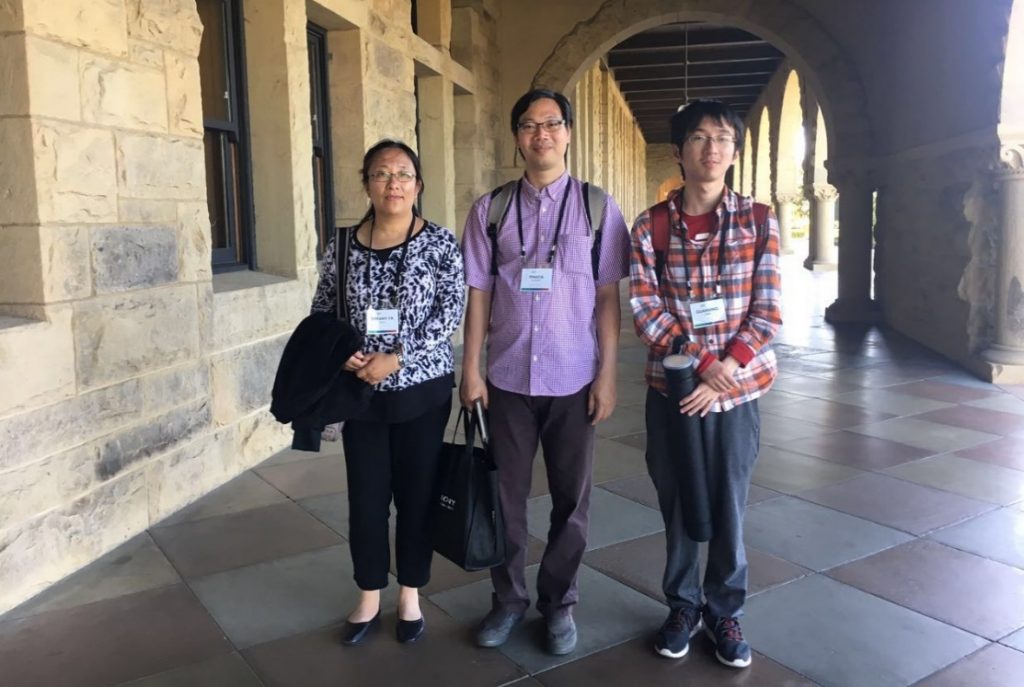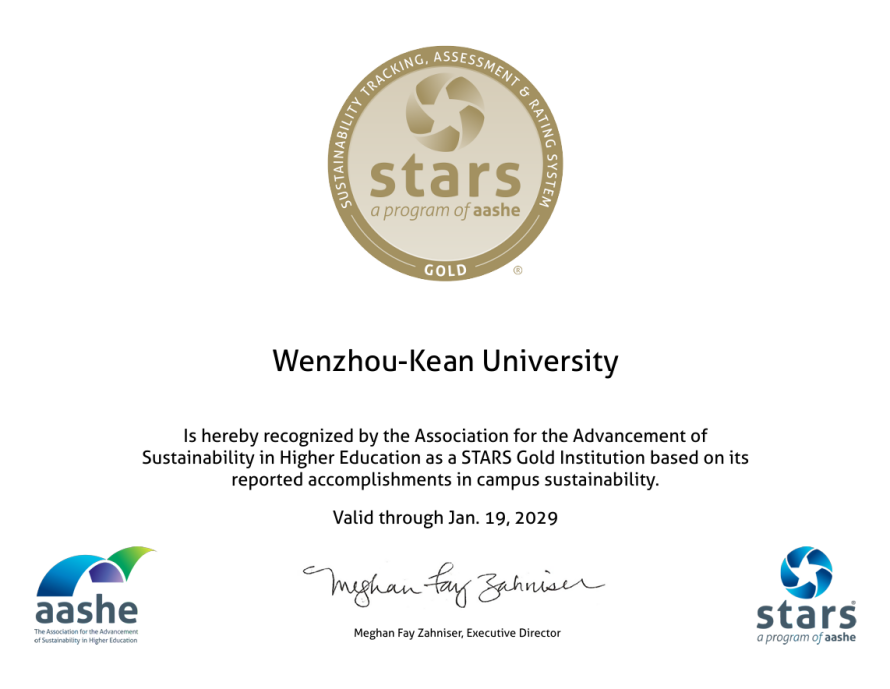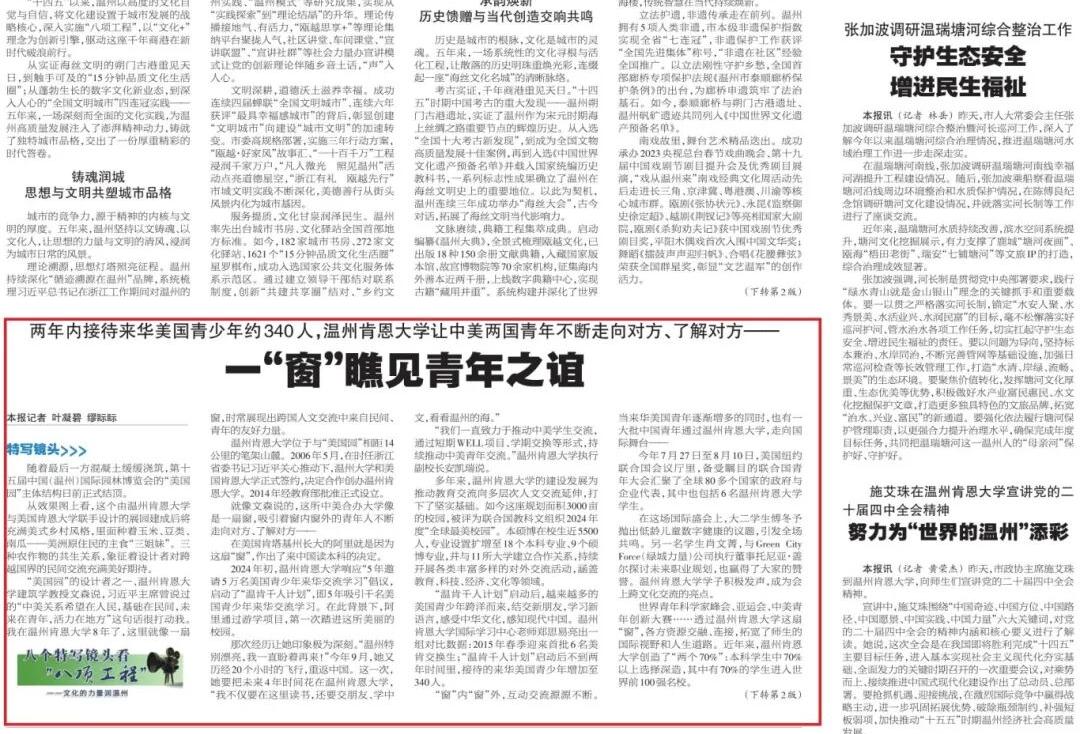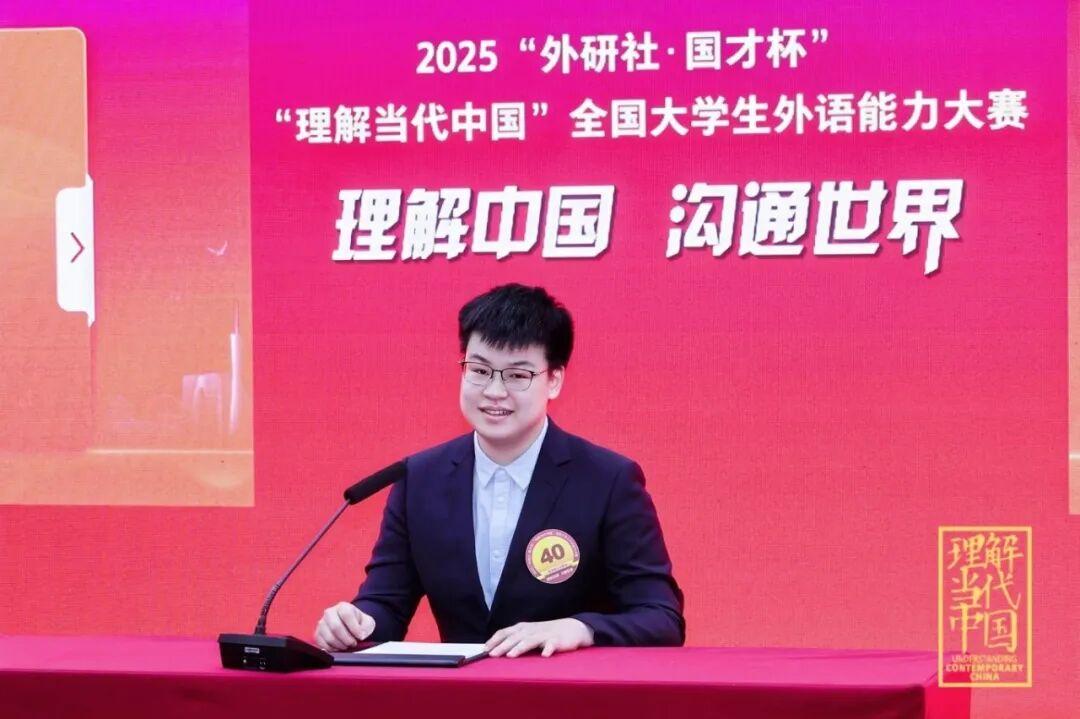K-News | Two major R&D projects of WKU regained Sci-Tech funds of Wenzhou
Recently, Wenzhou Science and Technology Bureau publicized that the Primary Exploration on A Mobile Application System for Smart Care of the Aged: Highly Customized and Individualized Cloud Computing Based Spatial Memory Training Mobile Application System to Improve Functional Independence of the Aged, a study project conducted by Dr. Pinata, a teacher of WKU Computer Engineering Department, and the Construction of the Chimera by Polypeptide K16ApoE and Lysosomal Enzyme TPP1 and Its Effect on Conquering Blood Brain Barrier, a study project conducted by Dr. Meng Yu, a teacher of WKU Biology Department, were both listed into the public Sci-Tech Plan Funding Program of Wenzhou in 2017.
Mobile Application System for Smart Care of the Aged, developed by WKU Weetap team led by Dr. Pinata, once took the first place in the China final competition of Microsoft Imagine Cup in the first half of this year. Relevant project of Dr. Meng Yu recently won RMB 190,000 fund support from the Youth Program of National Natural Science Foundation of China. According to such two teachers, they hope to cultivate students’ interest and ability in R&D through subject research while completing teaching task, so as to improve academic atmosphere and allow research results to better service the society.

This Summer, Teacher Pinata Winoto and Tiffany Tang led three WKU undergraduate students in Computer Department to attend the International Conference on Interaction Design and Children (ACM IDC) held in Stanford University from June 27 to 30.
This conference gathered researchers and graduate students from Stanford University, Massachusetts Institute of Technology, Columbia University, Cornell University, University of Pennsylvania, University of California, University of Sydney and other universities as well as companies and research institutes, including Hewlett Packard, Disney Research and Sesame Workshop.
In the conference, WKU team shared three study results, including emotion recognition on autistic children through face tracking by RealSenseTM camera, which trains the autistic children on their social attention coordination ability by multi-user desktop applications without forcing them to look.
“Face Tacking” project, which depends on portable and affordable 3D motion camera and machine learning technique to study the emotion of autistic children, received wide attention on the conference.
Catalin Voss, a researcher from Stanford University, expressed great interest in it and pointed out that emotion recognition by face tracking was rarely used in autistic patients although it was a research hotspot in artificial intelligence. Voss once conducted a research on recognizing the facial expression of autistic children by Google Glass which won Lemelson-MIT Student Prize in 2016. However, the Google Glass is very expensive. So the project conducted by WKU team undoubted offers more opportunities for researches in this field.
It’s learned that WKU team is the only team coming from China and also the only team that is comprised by undergraduate students. This research on autistic children is also one of the topics funded by WKU’s Student-Partnering-with-Faculty (SPF) program.
- Wenzhou-Kean University Spearheading Sustainability in Higher Education in Asia and in China, Awarded the AASHE STARS Gold-Certified in Sustainability

- Media Report | Wenzhou Daily: A Window into Friendship Between Chinese and U.S. Youths Wenzhou-Kean University Welcomes 340 Young Americans in Two Years

- WKU Student wins first prize in a national English speech contest: What is his answer to the value of boredom?


